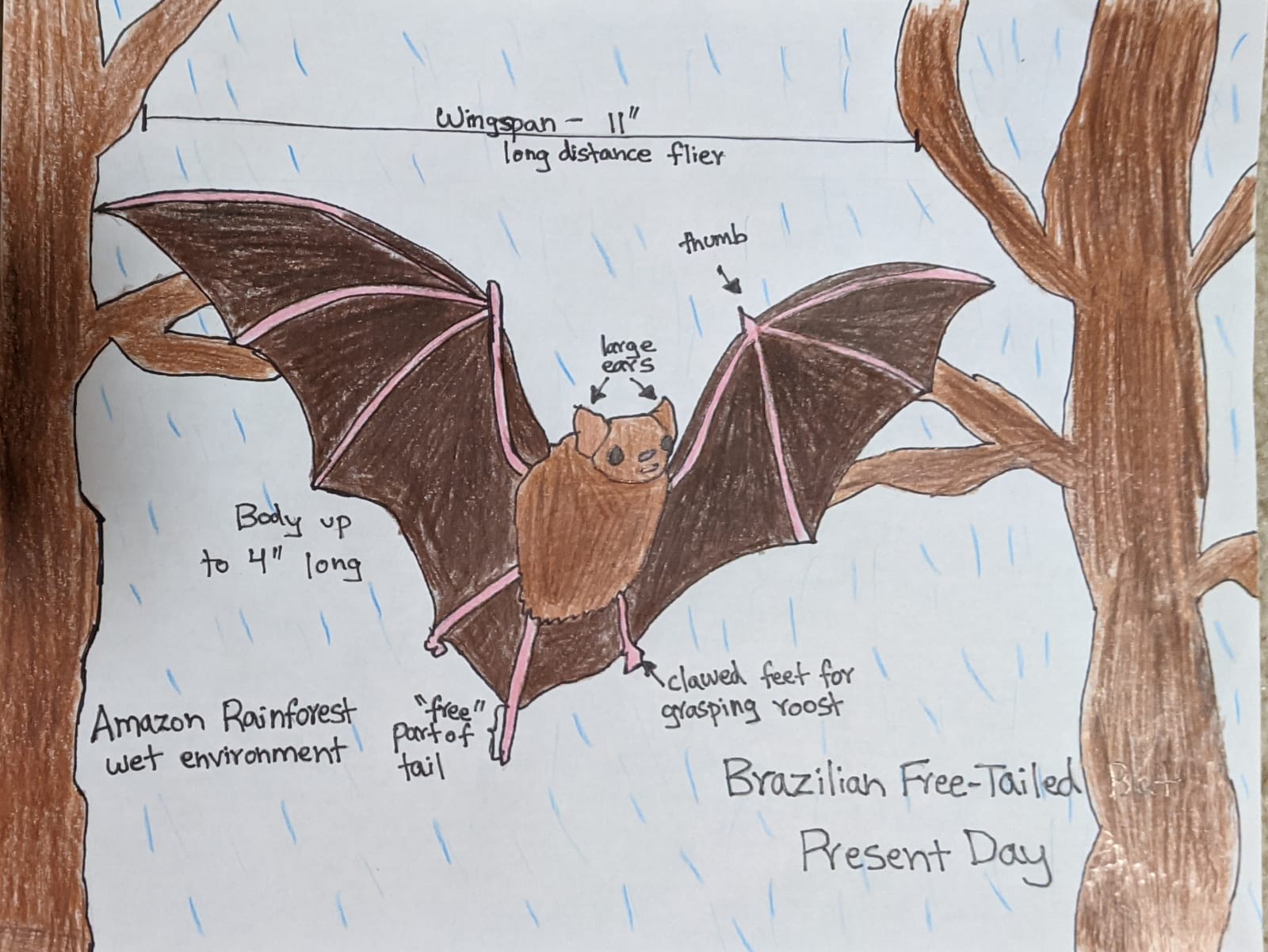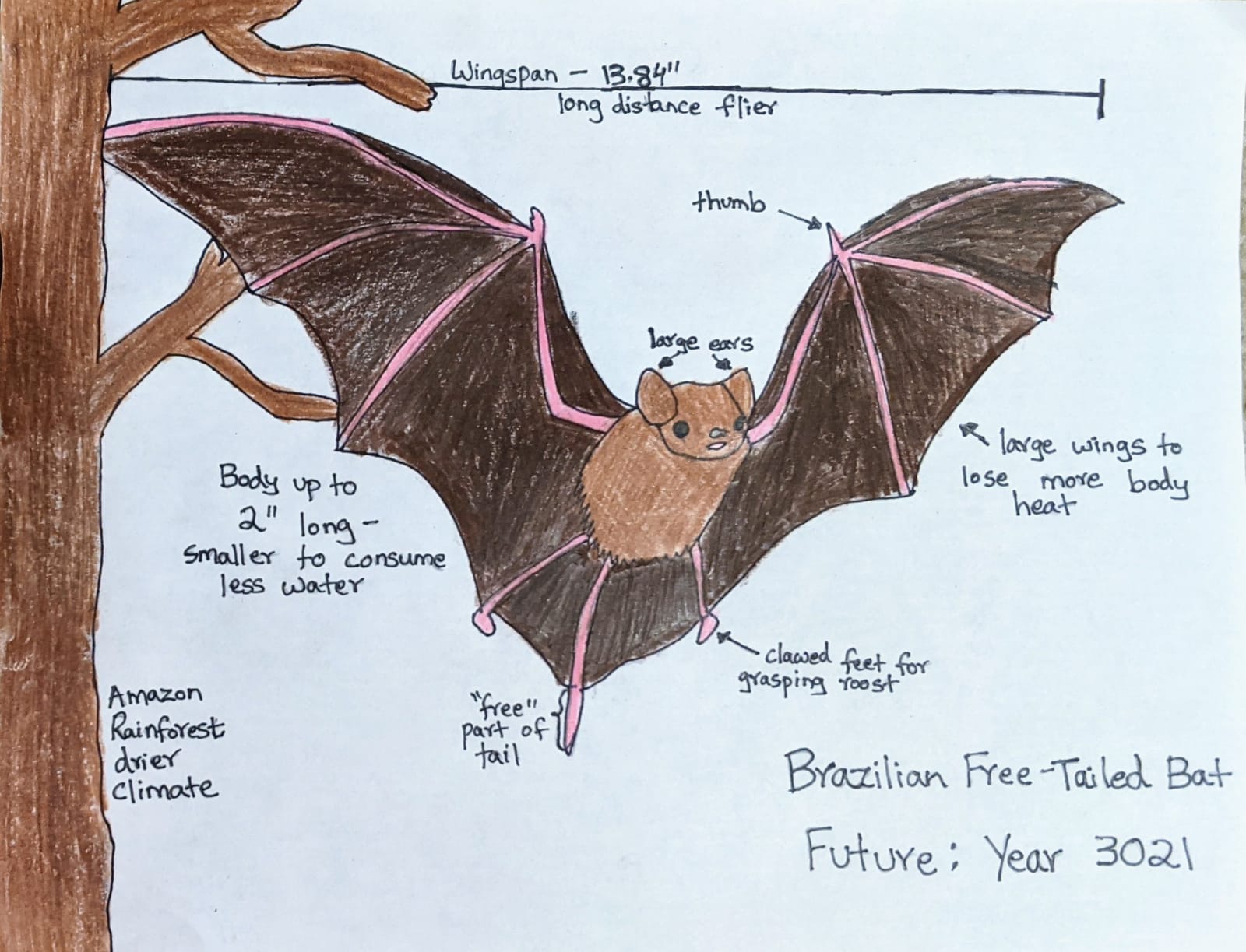The Brazilian Free-Tailed bat is a small insectivore that can be found in the Amazon Rainforest. As climate change transforms the environment, this animal will need to adapt to survive. Allen’s rule states that there are advantages to bigger appendages in warmer environments. Therefore, I believe that the Brazilian Free-Tailed bat’s wingspan will increase at a rate of around 2.34% every 100 years. In 3021, the bat’s wingspan would have increased to around 13.84 inches, meaning they will have a greater surface area for releasing body heat in the warmer climate. Pregnant female bats need 13 times more water than male bats. Due to climate change, there will be less rainfall in the forest, making it harder for bats to reproduce. Since reproduction is essential to the success of a species, I predict that bats will become smaller so they can survive with less water.
Contact us
Thank you for your interest in contacting Future Engineers. We look forward to connecting with you!
General Inquiries
support@futureengineers.orgSponsorship Inquiries
sponsor@futureengineers.org

